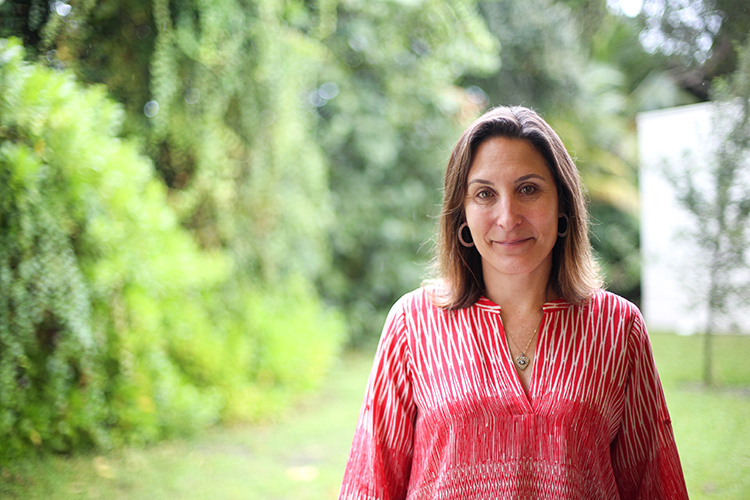
A one-of-a-kind class at St. Edward’s Upper School is providing students the chance to research the genealogical background of a best-selling author, as well as explore their own family histories.
Rosalind Wiseman, an educator and author of the best-selling book that formed the basis for the 2004 film “Mean Girls,” agreed to be the subject of the genealogy research project for 16 seniors, juniors and sophomores at the private school.
Wiseman, founder of the Cultures of Dignity educational consulting firm, has been working with faculty, students and parents at St. Ed’s for several years on strategies for successfully coping with the social and emotional challenges of young adulthood. St. Ed’s teachers also use curriculum materials developed by Wiseman in class.
“We were looking for a client that might have some name recognition, but also someone who understands the power of social media,” said Keira Murphy, head of Middle School, who is teaching the genealogy class. “I immediately thought of Rosalind.”
Murphy created her own curriculum for the course entitled “Teaching History Through Genealogy One Generation at a Time.” She is offering the elective history course at St. Ed’s for the sixth time.
“It’s absolutely a unique curriculum,” Murphy said. “I’m the only one in the country we know of that is teaching this kind of material at this level.
“The folks I work with and collaborate with do not know of any other high school or middle school teacher doing this in the country.”
Murphy said she developed a passion for genealogy while growing up in a family with deep roots in the small towns of Wheeling, West Virginia, and Hagerstown, Indiana.
“The skills that are required to be a successful genealogist are also skills we want all of our students to know,” Murphy said.
“How to write well, how to research well, how to make sure we are promoting work that is sound, to be accountable to other people. All of those different skills are used in genealogy and also what we’re trying to teach here at every level of school.”
In addition to being interviewed at length about her family background, Wiseman agreed to allow the students to interview her 77-year-old parents and their siblings for details about their ancestors and request family photos and documents.
Working with experts from Ancestry.com, the students will also conduct documentary research, obtaining records from local governments, libraries and other sources, Murphy said.
The students will also learn about the history of the times as they trace Wiseman’s family history back to Europe, Murphy said.
Ultimately, the students will present their findings during the “Big Reveal” in April with Wiseman’s family and friends at the Waxlax Performing Arts Center, Murphy said.
The presentation will be similar to the television show “Who Do You Think You Are?” which features emotional stories about the family histories of celebrities, Murphy said.
“Each of the members of my class will have some part in the presentation,” Murphy said. “There will also be something to give as well, like a book, or some sort of presentation.”
Wiseman said she never had much interest in her family’s genealogy, but her mother has always been keenly interested in the topic.
“I 100 percent know my mother would do this,” Wiseman said after a training session for St. Ed’s faculty. “She’s into the lineage stuff. She’s into the (family) tree.”
Wiseman grew up in Washington, D.C., but traces her family’s history back to Birmingham, Alabama, on her mother’s side and Pittsburgh on her father’s side.
Her ancestors on both sides of her family were Jewish emigres who came to the U.S. from Germany and Poland, her mother’s family in the mid-1800s and her father’s family in the early 1900s, Wiseman said.
“I think it’s going to be great for the kids to learn from my history,” Wiseman said. “That’s amazing. I’m looking forward to the students telling me who I am.”
In addition to the group project about Wiseman, each student will conduct a genealogical investigation of their own family, Murphy said.
“Some of them know quite a bit about their family backgrounds, but my job is to get them to dig for the documentation, the evidence that supports the oral history that they have heard,” Murphy said.
“Some students have no idea so they’re learning something new every day.”



